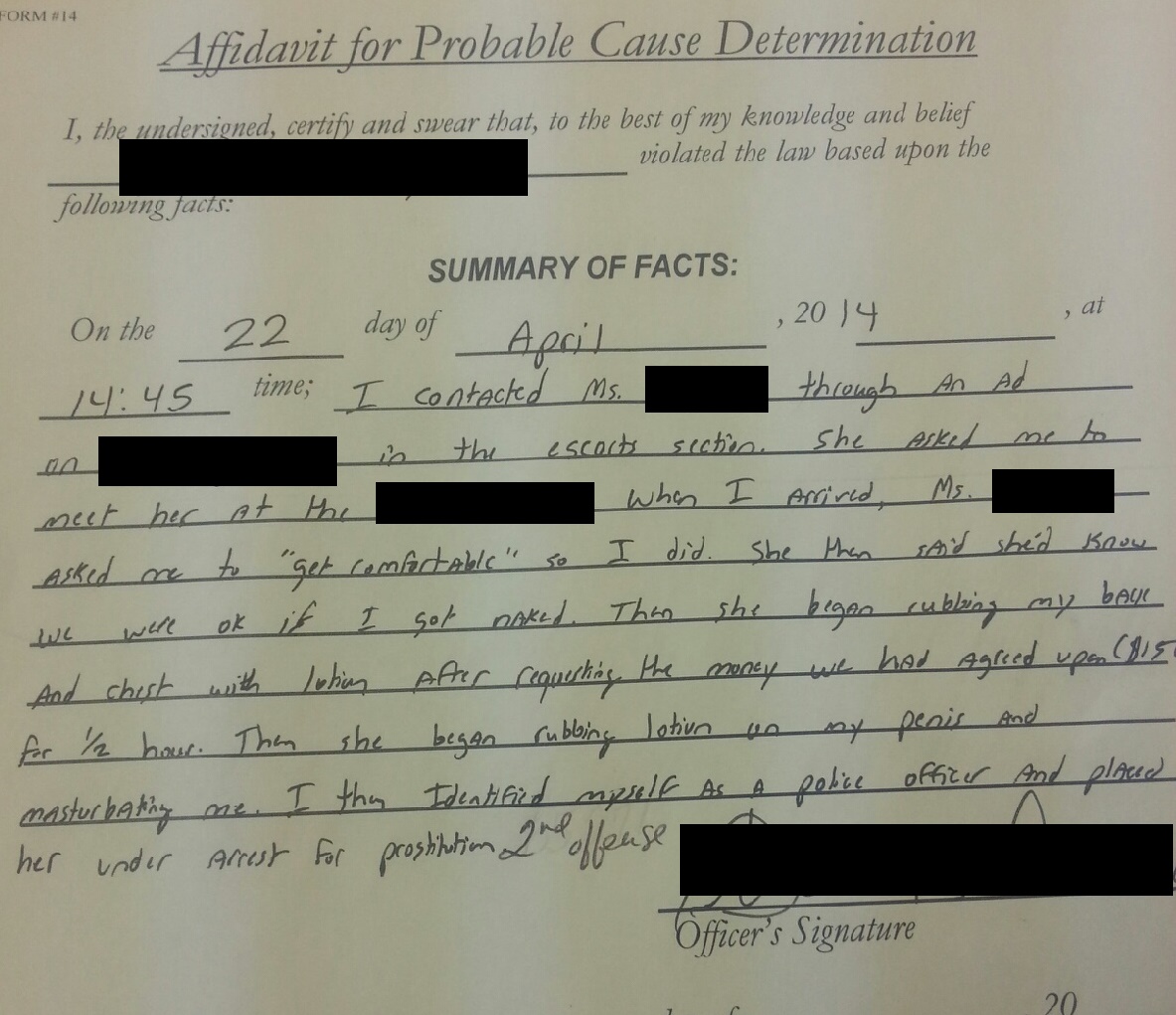It has been over a month since I’ve written anything here, despite having a bunch of stuff I would like to write about. Unfortunately, at least from a blogging perspective, I have not had the time to actually sit down and write anything of substance.[foot]Whether anything I do here is “of substance” is a matter open to debate, I suppose.[/foot] Part of the reason for that is because I have been spending quite a bit of time traipsing up and down the highway between Little Rock and Fort Smith for work-related stuff.
All of that said, there is an upside to my continued interactions with the 479. Specifically, like I mentioned at the Political Animals Club NWA meeting in June, you can’t swing a dead cat in Fort Smith without hitting someone doing something improper, dishonest, or otherwise shady. Let’s fling that kitty around and see what we can hit today.
Daily & Woods Finds Accuracy Inaccurate.
The Times-Record had a story today about the City’s response to a recent AFOIA lawsuit filed by Fort Smith resident Jack Swink. The lawsuit is based on the fact that City Clerk Shari Gard conduct a telephone poll of city directors in order to have each vote on whether the audit and contract review of Daily & Woods should be removed from a future meeting agenda. The suit specifically referenced Harris v. City of Fort Smith, in which the Supreme Court ruled that such polling — in that instance, done by now-City Administrator Ray Gosack — was improper. The story, quoting from Daily & Woods’ response, states:
The answer filed by Canfield and Redd also argues a FOIA lawsuit the city lost in 2004 speaks for itself and McCutchen’s summary of it to support his claim isn’t “fully accurate.”
That’s a really interesting position to take. Because the direct quote from the lawsuit is:
The Arkansas Supreme Court has held that contact of individual members of the Fort Smith Board of Directors by the City Administrator to obtain approval of action to be taken by the Board as a whole constituted an informal Board meeting subject to the AFOIA
And the last sentence of the first paragraph of the Harris decision states:
We hold that under the facts of this case, contact of individual Board members by the City Administrator to obtain approval of action to be taken by the Board as a whole constituted an informal Board meeting subject to the FOIA.
Remember, citizens of Fort Smith — you are paying $140 per hour for that kind of legal acumen.
Speaking Of That Lawsuit…
The facts of the whole thing are certainly worth laying out, if only to provide context for what I’m nearly certain will be a ridiculous amount of billing by Daily & Woods in defending the case.
Back in June, City Directors Pam Weber and Phil Merry invoked the city’s procedural rule that allows any two directors to put something on the agenda of an upcoming board meeting. Specifically, they asked that the Board take up the issues of whether the city should audit Daily & Woods’ billing, based on the posts where I showed that Daily & Woods repeatedly billed for things that did not happen, and whether the Board should review Daily & Woods’ contractual arrangement with the City to determine whether hiring in-house counsel — like every other city of any size does — would make more sense.
Shortly after the meeting where Merry and and Weber had those items placed on the agenda of the next meeting, Director Mike Lorenz contacted City Clerk Shari Gard and asked her to ask the other directors if they wanted to remove those items. Gard, invoking Fort Smith City Ordinance 2-31 (4), then contacted the other directors and, upon receiving three more votes to remove, notified the board, the City Administrator, and select media that the items had been removed.
Merry and Weber then again had those items added to another future agenda. Lorenz again contacted Gard, seeking removal, and Gard again contacted the other directors and, receiving four votes for removal, notified the relevant people of this fact.
Ordinance 2-31 (4) reads:
Any item of business may be denied a place on or removed from the agenda by notice of four (4) directors to the city clerk prior to the date of the meeting of the proposed consideration. The city clerk shall immediately notify the city administrator, the mayor, the directors and other interested persons of such action.
Now Gard — and others, apparently — read this ordinance to mean that the procedure Lorenz and Gard followed is totally acceptable: one director voices opposition, the clerk polls the rest, and the agenda is changed. Disco!
Thing is, the Arkansas Freedom of Information Act’s Open-Meetings provision (A.C.A. 25-19-106(a)) reads:
[A]ll meetings, formal or informal, special or regular, of the governing bodies of all municipalities . . . of the State of Arkansas, except grand juries, supported wholly or in part by public funds or expending public funds, shall be public meetings.
In Harris v. City of Fort Smith, as mentioned above, the Supreme Court specifically held that Ray Gosack’s calling of each director to find out their opinion on an action to be taken violated this law, even if the actual vote was done publicly after the fact. In this case, there wasn’t even a public vote done for show later on — Ms. Gard just reported the results of her individual contacts with each director.
In defense of this, Daily & Woods offer a number of arguments, each less persuasive than the last. First, they argue that this procedure is fine because it has happened multiple times before and is done under the cited ordinance. Obviously, “we’ve done it before” is not a valid argument — if it were, every person who broke a law once without getting caught could break the law with impunity going forward. Nor is the fact that they are citing an ordinance particularly persuasive; only if the city ordinance does not violate state law is it valid in the first place.[foot]Worth noting, an alternative interpretation of the ordinance would be probably completely fine: that is, if four directors, separately and of their own volition, contacted the clerk, asking for something to be removed, using the fourth vote as a trigger to remove something would likely be fine. It’s only this specific procedure that is problematic.[/foot]
Second, Daily & Woods argue, if the directors’ actions were in violation of the AFOIA’s open-meetings provision, then that provision is an unconstitutional prior restraint on free speech. To which you are probably saying, “what the hell?” Meaning that you understand how silly that argument is, even if Jerry Lee Canfield does not. This is not a free-speech issue by definition, as it does not seek to curtail speech; indeed, the suit specifically says that this speech must be public if it is to take place at all. It is also not an issue of prior restraint, as no one is seeking to curtail speech before it occurs; they are saying that, if you choose to conduct yourself in a manner that violates the AFOIA, then the AFOIA specifically provides recourse for a resident to address that violation.[foot]In fact, if Jerry Lee Canfield really wants to go down the free-speech road, I would note that the law suit is not even based on what was said — it is based on when and how it was said — and content-neutral time/place/manner restrictions are upheld if they are narrowly tailored (only prohibits private discussion of public business, check!), serve a significant government interest (transparency, check!), and leave open ample alternative means of communication (talk about it all you want at the board meeting, check!).[/foot]
Third, they argue something about how the whole AFOIA open-meetings provision is void for vagueness. Which it isn’t, so let’s just move on and not waste time considering that at all.
Good News From Chief Kevin Lindsey!
Or, more accurately, it is good news if you are the type of person who might (a) work at the FSPD while (b) having an affair with a co-worker who is (c) also married to a police officer. According to Chief Lindsey, that kind of behavior is a-ok!
“But, wait,” you might be thinking (if you are the type of person who believes in critical thought), “how can this not violate any policies or rules??” To which I would say, “I have no idea, because it certainly does.”
FSPD Rule 102 says, “The Rules and Regulations of the Fort Smith Police Department are designed to promote efficiency, discipline, and good public relations by setting forth rules governing the conduct of every sworn member (full-time officer, part-time officer, and reserve officer) of the police department, both on and off duty.” Then, when you get to the nuts-and-bolts of the rules, you’ve got:
301. Dereliction of duty on the part of any officer that is detrimental to the proper performance of the functions of the Department, is cause for disciplinary action. The offender shall be punished according to the severity of the violation, the results brought by the dereliction, and the effect it has upon the discipline, good order, and the best interest of the Department.
302. Officers shall not engage in any conduct which constitutes conduct unbecoming an officer or neglect of duty.
303. Officers shall not engage in any personal act or conduct which, if brought to the attention of the public, could result in justified criticism of that officer or the Department. No officer shall be personally involved in disturbances or police incidents to his/her discredit.
306. Officers shall not ridicule, mock, taunt, or belittle any person at any time. Neither shall he/she willfully embarrass, humiliate, nor shame any person nor do anything that might incite any person to violence.[foot]Ed.’s note: I mention this one because, in case you’ve been living under a rock, police officers have guns, and men who see other men who have been sleeping with their wives tend to not take it well.[/foot]
So…yeah. Aside from those rules, I guess I can see how the incident described above was within rules and policy. “But wait again,” you might say, “wasn’t a different officer given a written letter of reprimand after following policy and telling a female employee to stop sending unwanted, naked pictures of herself to him and other officers?” To which I would say, “yes, but apparently, in this agency, actually following policy is an unforgivable sin, while diddling another officer’s wife is not.” Welcome to Lindseyworld!
But That’s Nothing; Get A Load Of This.
The image below is a photograph of a probable-cause affidavit in an arrest made by a member of the FSPD street-crimes unit. I’m just going to put it here and let you marvel at the description of the incident for a second (you might have to click to enlarge). Then we’ll go all Paul Harvey with the rest of the story.

That’s right — the officer specifically notes that the escort “rubb[ed] lotion on [his] penis and began masturbating [him].” And this was AFTER they had already discussed the acts and money to be exchanged. Meaning, of course, that Det. Spanky McHanderson got himself a rub and tug after the crime was already complete and the female could have been arrested.

You know…there are a couple other things that I’d considered putting in this post, but I’ll be honest: “Det. Spanky McHanderson” and a reference to Chief Wiggum kind of feel like a drop-the-mic moment. So we’ll end here for now.
